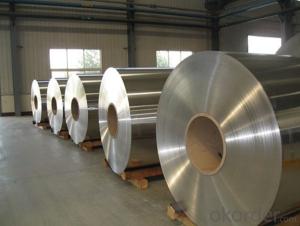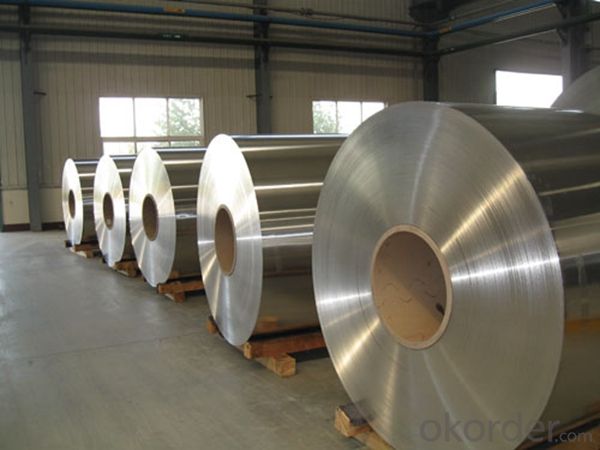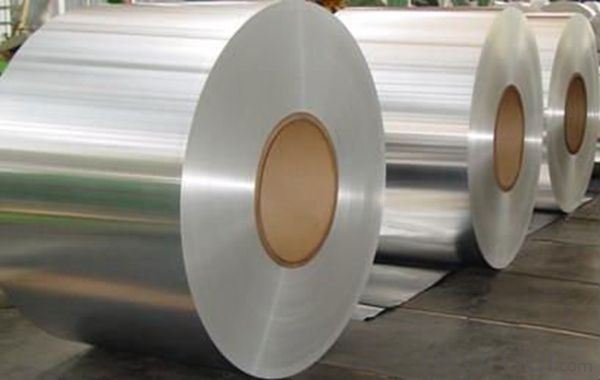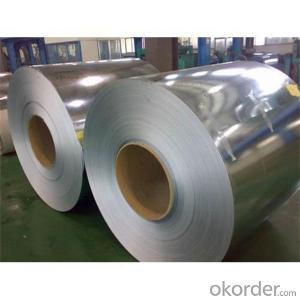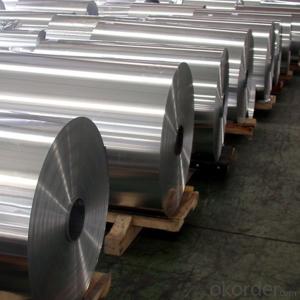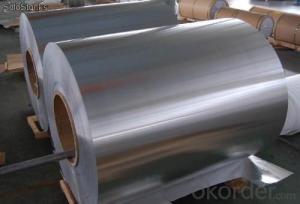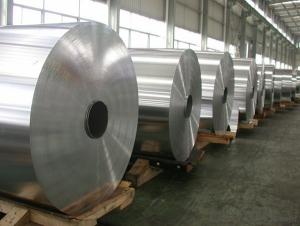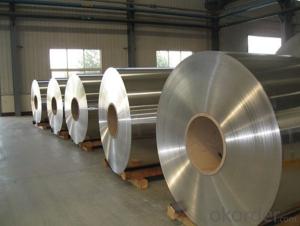Aluminum Copper Coil - Hot Rolled Aluminium Coil AA1100 for Building
- Loading Port:
- Shanghai
- Payment Terms:
- TT OR LC
- Min Order Qty:
- 5 m.t.
- Supply Capability:
- 10000 m.t./month
OKorder Service Pledge
OKorder Financial Service
You Might Also Like
Specification
1. Specification of Factory Supply Hot Rolled Aluminium Coil AA1100 for Building
characteristics | Application |
1) Super peeling strength | 1) Building exterior curtain walls |
2) Excellent surface flatness and smoothness | 2) Decoration and renovation additions for old buildings |
3) Superior weather, corrosion, pollutant resistance | 3) Decoration of interior walls, ceilings, bathrooms, kitchens and balconies |
4) Even coating, various colors | 4) Shop door decorations |
5) Fireproof, excellent heat and sound insulation | 5) Advertisement board display platforms and signboards |
6) Superior impact resistance | 6) Wallboards and ceilings for tunnels |
7) Lightweight and easy to process | 7) Industrial materials, materials for vehicles and boats |
2. Application of Factory Supply Hot Rolled Aluminium Coil AA1100 for Building
(1).Interior: wall cladding, ceilings, bathrooms, kitchens and balconies, shutters, doors...
(2).Exterior: wall cladding, facades, roofing, canopies, tunnels, column covers , renovations...
(3).Advertisement: display platforms, signboards, fascia, shop fronts...
3. Feature of Factory Supply Hot Rolled Aluminium Coil AA1100 for Building
• Our goods quality is top, the surface is smooth, and every steel coil
• No Joint, No Bends, no spots, no roller marks.
• MTC will be provided with goods, third part inspection is acceptable, for example, SGS, BV. Etc
Be free from Oil Stain, Dent, Inclusion, Scratches, Stain, Oxide Dicoloration, Breaks, Corrosion, Roll Marks, Dirt Streaks and other defect which will interfere with use
4. Certificate:
SGS and ROHS(if client request, paid by client), MTC(plant provided), Certificate of Origin(FORM A, FORM E, CO), Bureau Veritas and SGS (if client request, paid by client), CIQS certificate
5. Image of Factory Supply Hot Rolled Aluminium Coil AA1100 for Building
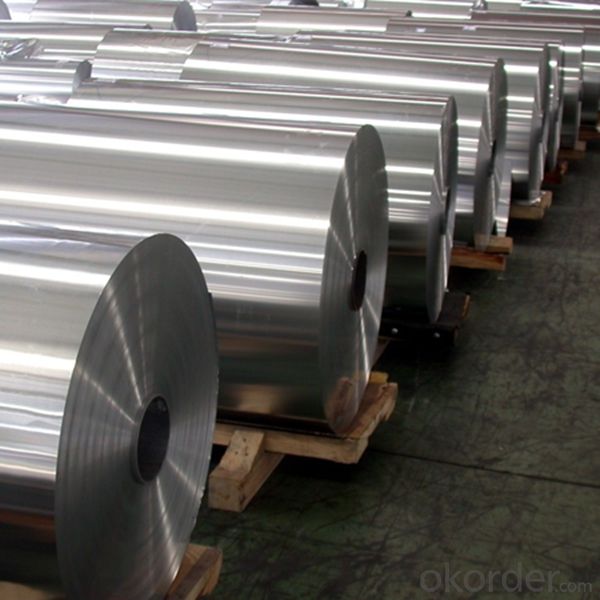
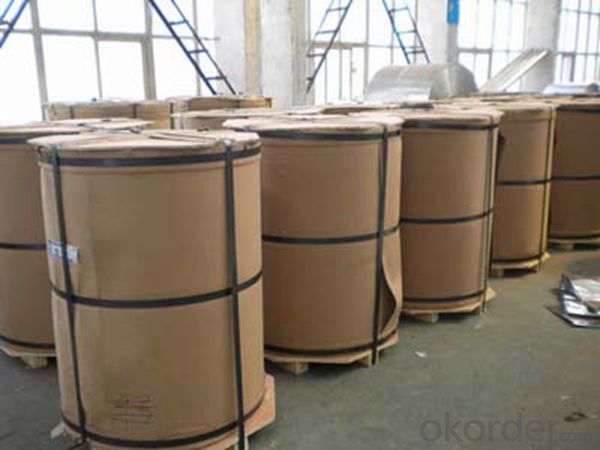
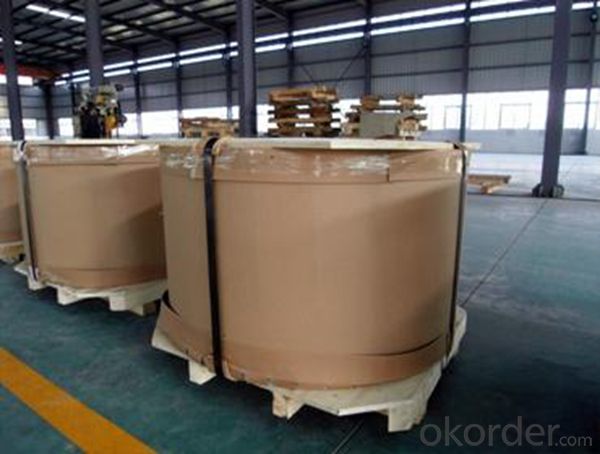
6. Package and shipping of Factory Supply Hot Rolled Aluminium Coil AA1100 for Building
eye to wall
eye to the wall
with wood pallet (wooded case also available)
7. FAQ
1) What is the delivery time?
Dpends on actual order, around 20 to 35 days
2)What is the QC system:
We have QC staff of 20 persons and advanced equipment, each production is with MTC traced from Aluminum ingot lot.
3) What market do you mainly sell to?
Australia, America, Asia, Middle East, Western Europe, Africa etc
- Q: Can aluminum coils be used for food processing conveyor systems?
- Aluminum coils are a viable option for food processing conveyor systems. The food processing industry favors aluminum for its advantageous properties. To begin with, aluminum's lightweight nature facilitates effortless installation and transport. This aspect proves especially valuable for conveyor systems that necessitate frequent reconfiguration or relocation. Moreover, aluminum exhibits exceptional resistance to corrosion, a pivotal attribute in food processing environments where exposure to moisture, chemicals, and food particles is prevalent. Additionally, aluminum's hygienic attributes make it easy to clean and maintain, ensuring adherence to food safety standards. Lastly, aluminum coils can be effortlessly molded and customized to meet the specific requirements of conveyor systems, thereby facilitating efficient and effective food processing operations. Consequently, aluminum coils emerge as a fitting choice for food processing conveyor systems.
- Q: What are the potential hazards associated with handling aluminum coils?
- There are several potential hazards associated with handling aluminum coils. One of the main hazards is the risk of physical injury. Aluminum coils are often heavy and can cause strain or sprain injuries if they are not lifted or moved properly. Additionally, if the coils are not securely stacked or stored, they can fall and cause injury to workers. Another hazard associated with aluminum coils is the risk of sharp edges. Aluminum coils can have sharp edges or burrs that can cause cuts or lacerations if not handled with care. Workers should wear appropriate gloves and protective clothing to minimize the risk of injury. Another potential hazard is the risk of fire or explosion. Aluminum is highly flammable when in contact with certain substances, such as acids or alkalis. Therefore, it is important to ensure that aluminum coils are stored in a cool and dry place away from any flammable materials. Furthermore, aluminum coils can pose a respiratory hazard. When cutting or manipulating aluminum coils, dust or particles may be released into the air. Breathing in aluminum dust can cause respiratory irritation or even lung damage. Therefore, it is important for workers to wear appropriate respiratory protection when handling aluminum coils. Lastly, aluminum coils can also present a chemical hazard. Some aluminum coils may be coated or treated with chemicals that can be toxic or irritating to the skin and eyes. Workers should be aware of the potential hazards associated with the specific type of aluminum coil they are working with and take appropriate precautions, such as wearing protective clothing and eye protection. Overall, it is important for workers to be aware of the potential hazards associated with handling aluminum coils and to take appropriate safety measures to minimize the risks. Regular training, proper lifting techniques, wearing protective equipment, and storing aluminum coils safely are all important steps in ensuring the safety of workers handling aluminum coils.
- Q: How do aluminum coils contribute to architectural design flexibility?
- Architectural design flexibility is greatly enhanced by the unique properties and versatility of aluminum coils. Firstly, their lightweight nature simplifies handling and installation, in contrast to materials like steel or concrete. This attribute grants architects the freedom to explore more imaginative and innovative designs, unburdened by weight constraints. It also facilitates the construction of large and intricate structures, providing architects with greater design freedom. Secondly, aluminum coils offer an extensive array of surface finishes and colors. They can be painted, anodized, or coated with various materials, enabling architects to achieve desired aesthetic effects and harmonize the building's appearance with its surroundings or intended architectural style. This broad range of finishes allows architects to experiment with diverse visual effects, textures, and patterns, thereby enhancing overall design flexibility. Furthermore, aluminum coils possess exceptional corrosion resistance properties. This durability ensures that architectural elements made from aluminum coils can withstand harsh weather conditions, such as rain, snow, or UV radiation, without deteriorating over time. The extended lifespan and minimal maintenance requirements of aluminum coils make them an appealing choice for architects seeking sustainable and long-lasting design solutions. Moreover, aluminum coils can be easily shaped, bent, or formed into an assortment of profiles and dimensions. This malleability empowers architects to create custom architectural elements that meet specific design requirements, such as curved facades, intricate detailing, or irregular shapes. The ability to mold aluminum coils according to the architect's vision enables the realization of distinctive and unique designs that stand out in the architectural landscape. Lastly, aluminum coils are recyclable and environmentally friendly. By incorporating aluminum into architectural design, architects align themselves with sustainable practices, as aluminum can be recycled repeatedly without losing its properties. This aspect appeals to architects and clients who prioritize eco-friendly design solutions and seek to minimize their carbon footprint. In conclusion, aluminum coils significantly contribute to architectural design flexibility by offering lightweight construction, a wide range of surface finishes, excellent corrosion resistance, malleability, and recyclability. These characteristics empower architects to push the boundaries of design, create visually stunning structures, and deliver sustainable and enduring architectural solutions.
- Q: Can aluminum coils be used for HVAC condenser coils?
- Yes, aluminum coils can be used for HVAC condenser coils. Aluminum is a popular choice for condenser coils due to its excellent heat transfer properties, durability, and resistance to corrosion. Additionally, aluminum coils are lightweight, making them easier to install and transport.
- Q: Why does the heat preservation aluminum roll bend when it is cooled?
- In recent years, because the iron sheet in the heat preservation industry does not have rust prevention effect, so now in the domestic aluminum sheet has fully replace iron sheet.
- Q: Is it possible to construct a lampshade using an aluminum coil?
- <p>Yes, you can use an aluminum coil to make a lampshade. Aluminum is a lightweight, durable, and heat-resistant material, making it suitable for lampshade construction. You can bend and shape the coil into a desired form and attach it to the lamp base. Ensure proper electrical insulation and avoid direct contact between the coil and the light bulb to prevent overheating. It's advisable to use a professional or follow detailed instructions to ensure safety and a quality result.</p>
- Q: How are aluminum coils made?
- Aluminum coils are made through a process called continuous casting and rolling. First, pure aluminum is heated and melted in a furnace. Then, the molten aluminum is poured through a curved mold with a small opening at the bottom, where it solidifies into a long, thin strip. This strip is then passed through a series of rolling mills, where it is gradually reduced in thickness and lengthened to form a coil. The coils are then cooled, inspected, and ready to be used in various industries such as construction, automotive, and packaging.
- Q: Is it possible to utilize aluminum coils in the construction of solar panels or wind turbines?
- <p>Aluminum coils can be used in the construction of both solar panels and wind turbines, but not as the primary material for energy conversion. In solar panels, aluminum is often used for framing and mounting structures due to its lightweight and corrosion-resistant properties. For wind turbines, aluminum is utilized in the manufacturing of certain components such as nacelle shells and towers, but the main rotor blades are typically made from composite materials for their strength and aerodynamic properties. Thus, while aluminum plays a supportive role in these renewable energy technologies, it is not the core material for capturing solar or wind energy.</p>
- Q: Is aluminum silicate roll felt the same as aluminum silicate acupuncture blanket?
- No, the unit weight of aluminum silicate fiber felt is greater than that of aluminum silicate acupuncture blanket. Both are thermal insulation and fire-proof material and have the same function.
- Q: How do aluminum coils perform in high humidity environments?
- Due to its inherent resistance to corrosion, aluminum coils excel in high humidity environments. Unlike metals like iron or steel, aluminum does not rust when exposed to moisture. Thus, it is an ideal option for applications where high humidity is a worry, such as air conditioning systems or refrigeration units. The corrosion resistance of aluminum primarily stems from the creation of a thin layer of aluminum oxide on its surface when it comes into contact with oxygen. This oxide layer acts as a protective barrier against further oxidation, safeguarding the metal from deterioration even in humid conditions. Furthermore, the lightweight nature of aluminum enables superior heat transfer and energy efficiency in cooling systems. This characteristic makes aluminum coils a favored choice as heat exchangers, efficiently transferring heat from the air or fluid flowing through them. Additionally, aluminum coils are commonly coated with a protective layer or treated with a corrosion-resistant coating to further enhance their performance in high humidity environments. These coatings offer an additional layer of defense against moisture and other corrosive elements, ensuring the durability and dependability of the coils. In conclusion, aluminum coils are highly suitable for high humidity environments due to their corrosion resistance and efficient heat transfer properties. The combination of these factors makes them a reliable option for various applications where moisture is a concern.
Send your message to us
Aluminum Copper Coil - Hot Rolled Aluminium Coil AA1100 for Building
- Loading Port:
- Shanghai
- Payment Terms:
- TT OR LC
- Min Order Qty:
- 5 m.t.
- Supply Capability:
- 10000 m.t./month
OKorder Service Pledge
OKorder Financial Service
Similar products
Hot products
Hot Searches
Related keywords
